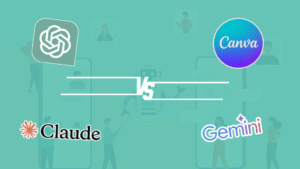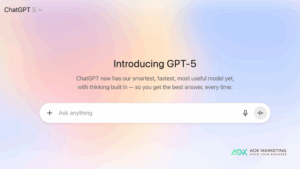In the fast-paced world of digital marketing, staying ahead of trends and uncovering deep insights is the key to success. As businesses strive to remain competitive and innovative, artificial intelligence (AI) has emerged as a crucial player in the marketing arena. AI plays a pivotal role in both strategizing and executing marketing plans, especially when it is integrated into brainstorming sessions where creativity and analytics merge to reveal new opportunities. In this in-depth article, we’ll explore how AI is revolutionizing marketing brainstorming sessions and how marketers can leverage these technologies to gain a sharper edge.

Understanding the AI Revolution in Marketing
Before delving into the specifics of brainstorming sessions, it’s essential to establish a foundation for understanding how AI is transforming marketing overall. AI involves the use of machine learning algorithms, natural language processing (NLP), predictive analytics, and more to perform tasks that typically require human intelligence.
In marketing, AI can help to:
- Analyze large sets of data to identify consumer patterns.
- Optimize campaigns in real-time for better performance.
- Personalize customer experiences on a mass scale.
- Automate repetitive tasks, allowing human marketers to focus on strategy.
With such capabilities at its disposal, it comes as no surprise that AI has found its way into brainstorming sessions, enhancing the creative process with data-backed insights.
Brainstorming in the Age of AI
Brainstorming sessions traditionally involve groups of people coming together to generate ideas and solutions without the constraints of criticism or limitations. In the age of AI, these sessions have become data-enriched, blending human creativity with machine precision to produce innovative and effective marketing strategies.
The Role of AI in Brainstorming Sessions
AI can serve multiple roles in marketing brainstorming sessions, each contributing to a more informed and efficient ideation process.
- Data Analysis: AI can quickly sift through vast amounts of data to uncover patterns, trends, and insights that might not be immediately obvious to human marketers.
- Predictive Modeling: Marketers can use AI to predict the outcomes of certain strategies, allowing them to prioritize ideas with the highest potential ROI.
- Content Generation: AI-powered tools can help create content ideas by analyzing successful past campaigns or trending topics across social media and news outlets.
- Competitive Analysis: AI systems can monitor competitors’ marketing efforts in real-time, providing a backdrop for brainstorming sessions aimed at differentiation and positioning.
Integrating AI into Marketing Brainstorming
The integration of AI into marketing brainstorming sessions involves a collaborative approach where both humans and machines contribute their strengths.
Preparation: Before the session, AI tools can prepare reports on market trends, customer feedback, and competitive landscapes. This sets the stage with relevant information that can stimulate ideas and focus discussions.
Idea Generation: During brainstorming, AI can offer suggestions and prompt further creativity by presenting data-driven hypotheses for the team to consider.
Validation: As ideas surface, AI can immediately run simulations or analyze historical data to estimate the validity and potential impact of the proposed strategies.
Optimization: Once an idea is selected, AI can optimize campaign elements, such as timing, audience targeting, content personalization, and channel selection.
Successful AI Brainstorming Techniques
Effective AI-augmented brainstorming requires a balance of technique and technology. Here are some methods to ensure success:
- Set Clear Objectives: Begin with a clear understanding of what you want to achieve with the brainstorming session and ensure the AI has the relevant data to assist.
- Encourage Open Collaboration: Foster an environment where team members feel comfortable contributing ideas, knowing that AI will provide supportive data.
- Focus on Data-Driven Insights: Use AI to bring forward insights that are steeped in data, ensuring decisions are factual rather than purely speculative.
- Embrace Diverse Perspectives: Leverage the varied insights from team members and the AI to broaden the scope of ideas and uncover unique strategies.
Case Studies: AI in Action During Brainstorming
To illustrate the power of AI in marketing brainstorming sessions, let’s look at a few case studies:
- AI-Powered Social Listening: A brand used AI to monitor social media conversations about their industry. The insights gained from sentiment analysis helped them identify a new target demographic that was previously overlooked.
- Personalization at Scale: An e-commerce company employed AI algorithms to generate personalized product recommendations. Their marketing team used these insights to brainstorm targeted campaigns that significantly increased conversions.
- Real-time Competitive Analysis: By utilizing AI to perform real-time monitoring of competitors’ marketing campaigns, a business was able to quickly adjust their strategy during a brainstorming session to fill gaps in the market.
Challenges and Considerations
While AI brings many advantages to marketing brainstorming sessions, some challenges need to be addressed:
- Data Privacy: Ensure that the AI systems used are compliant with data protection laws and ethical guidelines.
- Integration Costs: Be mindful of the costs associated with implementing AI technology and training staff to use it effectively.
- Human-AI Balance: Maintain a balance between AI findings and human intuition to avoid over-reliance on technology which could stifle creativity.
Additionally, while AI can provide insights, it cannot yet replicate human creativity and emotional intelligence. It’s essential to view AI as a powerful tool in the brainstorming arsenal rather than a replacement for the human element.
Looking Ahead: The Future of AI in Marketing Brainstorming
As AI technology continues to advance, its role in marketing brainstorming sessions is poised to expand. We may see AI systems suggesting not just insights but also full-fledged campaigns based on real-time global market shifts. The focus will likely shift from simple data analysis to more complex tasks like creating emotionally engaging narratives that resonate with audiences.
Conclusion: Embracing AI for Marketing Innovation
The use of AI in marketing brainstorming sessions is more than just a trend; it’s a transformative shift in how marketers approach their craft. As AI technology becomes increasingly sophisticated, it opens up a world of possibilities for identifying trends, understanding consumer behavior, and creating personalized marketing strategies at scale. By intertwining AI with human ingenuity, businesses can uncover opportunities that would otherwise remain hidden, craft more compelling stories, and ultimately achieve a stronger connection with their audiences.
With careful implementation, an awareness of potential challenges, and a commitment to collaboration, marketers can leverage AI to push the boundaries of innovation and drive unprecedented success in their campaigns. The future of marketing brainstorming is an exciting frontier, and it is within this melding of technology and creativity that the next big breakthroughs will be found.
About The Author
Marketing Team
The AOK Marketing Team is a diverse group of amazing individuals driven to help all of our clients succeed. Great people are everywhere, and we believe that people should control their workday, their work environment, and where they live. We have team members in 9 countries: United States, Canada, Egypt, Belgium, Ireland, Australia, India, Pakistan, and Hong Kong.
How can we help you?





